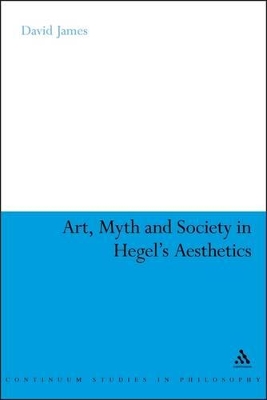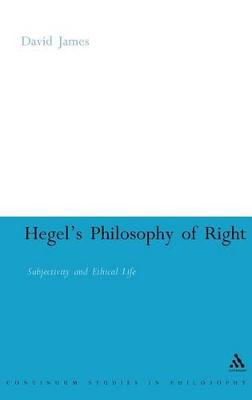Continuum Studies in Philosophy
2 total works
Art, Myth and Society in Hegel's Aesthetics returns to the student transcripts of Hegel's lectures on aesthetics, which have yet to be translated into English and in some cases remain unpublished. David James develops the idea that these transcripts show that Hegel was primarily interested in understanding art as an historical phenomenon and, more specifically, in terms of its role in the ethical life of various peoples. This involves relating Hegel's aesthetics to his philosophies of right and history, rather than to his logic or metaphysics. The book thus offers a thorough re-evaluation of Hegel's aesthetics and its relation to his theory of objective spirit, exposing the ways in which Hegel's views on this subject are anchored in his reflections on history and on different forms of ethical life.
In this important new book, David James offers an innovative interpretation of a key element of Hegel's political thought. James seeks to identify the basic aims of Hegel's philosophy of right through an analysis of his approach to subjectivity. He argues that the basic aim of Hegel's philosophy of right is to accommodate subjectivity within a framework of universally valid ethical norms and that an analysis of how Hegel attempts to do this provides a key to understanding his philosophy of right. This in turn makes possible a highly unified interpretation of the project that determines the shape and structure of his theory of modern ethical life. The ways in which Hegel uses the term subjectivity have never before been analysed in sufficient detail. James shows that Hegel's understanding of this term depends very much on the context in which he is using it and by analysing this carefully shows that this concept is essentially related to his theory of freedom. This fascinating book offers a unified interpretation of Hegels philosophy of right and will make an important contribution to the study of Hegel's political thought.

